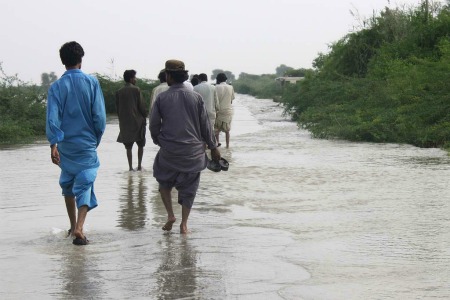
Two high-ranking U.N. officials reiterated the call for governments to focus on comprehensive disaster management and preparedness to save lives and livelihoods. The call was made in the wake of the devastating floods that hit Pakistan for the second year running and as floodwaters likewise wreak havoc in other Asian countries.
As she was set to depart for a three-day visit to flood-hit Pakistan, U.N. International Strategy for Disaster Reduction chief Margareta Wahlström said Pakistan’s flood risk can be predicted by modelling systems. She noted that this year’s flooding, just like last year’s devastating floods, have been concentrated in rural areas that lack early warning systems and preparedness measures.
Wahlström called on the different actors involved to implement a ”quantum leap in disaster risk reduction in Pakistan.”
International aid agencies have earlier criticized the Pakistani government for failing to install adequate prevention measures despite last year’s disaster. As a result, floods have caused massive destruction in Pakistan anew, affecting some 7 million people and killing 400, the Office of the U.N. High Commissioner for Refugees said.
More than a month after the floods hit the provinces of Sindh and Balochistan, the floodwaters have receded, but flood victims continue to live in makeshift shelters and are at risk of hunger and diseases despite the efforts of humanitarian agencies to provide emergency assistance. Sluggish donor response has been blamed.
But Pakistan’s problem is hardly isolated. Wahlström noted the floods that recently devastated other Asian countries, including the Philippines, India, Bangladesh, Thailand and Cambodia, are annual events brought about by the monsoon rains from June to September each year. Therefore, these floods are “signposted long before their arrival,” she said.
“If you know what to expect then adequate preparedness measures should pay off and save lives, homes and livelihood,” Wahlström added
Vladimir Sakharov, the environmental services section chief of the U.N. Environment Program/U.N. Office for the Coordination of Humanitarian Affairs Emergency Partnership, concurred.
According to Sakharov, the international community spends “a huge amount of money in response to natural disasters, instead of concentrating on a comprehensive risk management and preparedness.”
For Sakharov, governments can better address the situation by installing disaster preparedness measures such as boosting emergency preparedness training, developing early warning systems, and improving placement and structure of basic infrastructure so that they are not vulnerable to natural hazards.
No comments:
Post a Comment